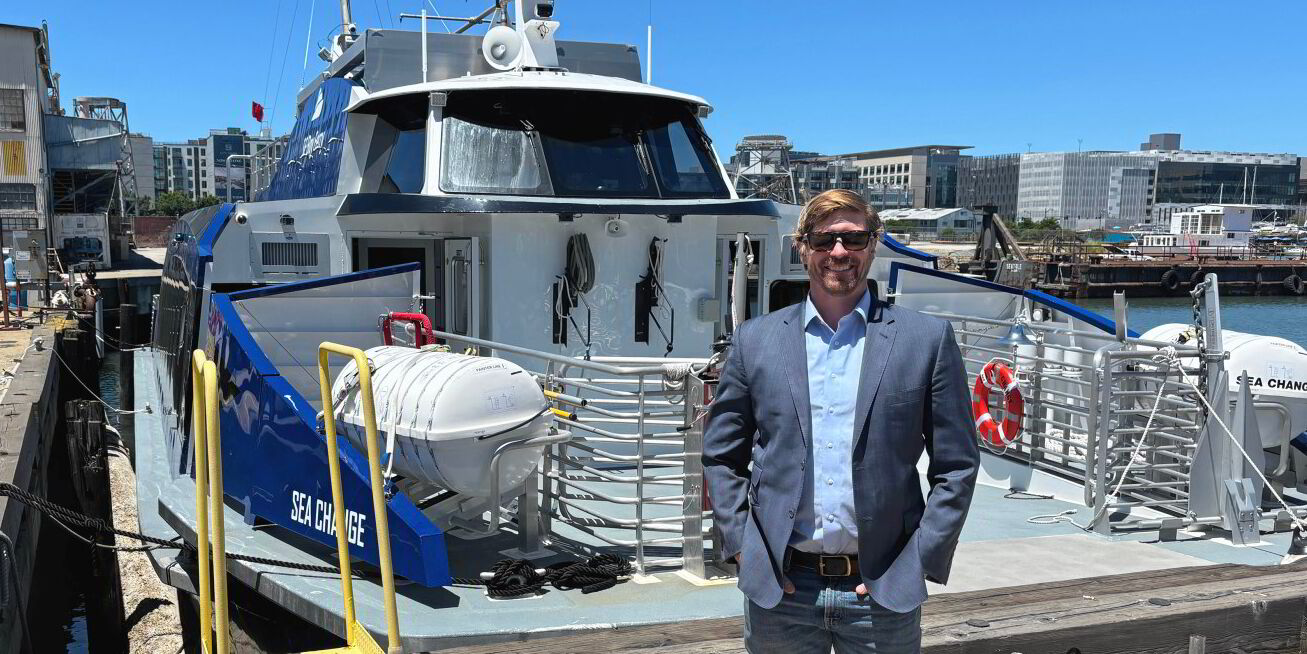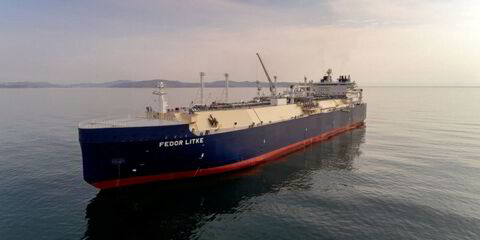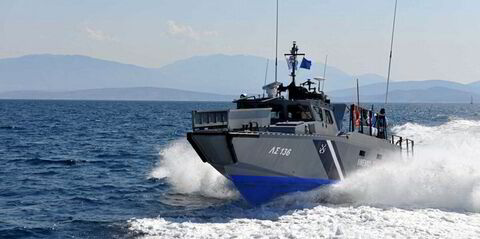Shipping could face more legal risks as it gears up to comply with FuelEU Maritime, the latest round of carbon rules that Brussels has imposed on the industry.
Maritime and environmental lawyers believe this new law, which will gradually tighten carbon-intensity limits on the energy used by shipping at the beginning of 2025, could lead to a higher threat of litigation than the European Union’s Emissions Trading System (EU ETS) that applied to shipping from January this year.
Watson Farley & Williams partner Nick Walker, who works in the law firm’s regulatory practice, noted that the differences between the two laws make FuelEU Maritime more problematic.
He said: “There are risks up and down the value chain for owners, managers and charterers.”
Under FuelEU Maritime, the company responsible for the ship’s International Safety Management, typically its technical manager, handles regulatory compliance.
Meanwhile, the registered owner or charterer is expected to cover any financial penalties for failing to meet the carbon-intensity targets.
But Walker said there are no regulatory levers to compel them to do so.
In contrast, under the emissions trading regime shipowners or ship managers are responsible for reporting and submitting carbon credits, known as EU Allowances.
However, the regulation specifies that it is the charterers or commercial operators — identified as the actual polluters — who are required to pay for these allowances.
Philip Roche, co-head of the shipping group at law firm Norton Rose Fulbright, said FuelEU Maritime presents more litigation risk than the EU ETS because of the structure of shipping contracts and the potential for off-specification fuels.
On the other hand, he said the FuelEU Maritime rules are “reasonably complete” compared with the bloc’s ETS, which saw Brussels wait until practically the last minute to publish the implementation regulation.
Better understood law
“FuelEU Maritime is a bit easier, and we know a bit more,” Roche said. “We see people being pretty pragmatic about it. They understand what they need to do.”
He said charterers have been sensible, understanding that they will have to take on the burden of penalties incurred because of the way they operate a ship or the fuel they buy.

Many in the industry have described FuelEU Maritime as legislation focused on shipowners, compared with the emissions trading regime’s “polluter pays” focus on charterers.
But Roche said that the new law also targets charterers. Regulators have placed FuelEU Maritime’s penalty payment liability on shipowners for easier enforcement, but since the regulation focuses on fuel, it impacts charterers as well.
There are also opportunities to make money from the legislation — like the mechanism that allows the creation of pools that combine lower-carbon ships with vessels that have higher emissions.
The FuelEU Maritime law has the following carbon intensity limits for the energy used by shipping:
- 2% by 2025
- 6% by 2030
- 14.5% by 2035
- 31% by 2040
- 62% by 2045
- 80% by 2050
But Norton Rose Fulbright still sees risk.
Kelli Bodal Hansen, a lawyer who serves as the firm’s client knowledge director, said one thing that remains unexplained is what happens if there is a change in the holder of a ship’s document of compliance (DOC).
The DOC holder, often a technical manager, is responsible for reporting and submitting payment for the penalty under the law.
That could happen if its management changes or if the vessel is sold.
“That’s one bit of the puzzle that is missing in explaining how you’re going to allocate that responsibility,” Bodal Hansen said.
“Because if you’re the DOC holder for a ship on 1 January, and then you get replaced because you get a new manager or the ship has sold, you’re certainly not going to want to be on the hook for the penalties for the next manager. So I think that’s something that needs to be addressed.”
Enough fuels?
Valentina Keys, a lawyer at WFW who advises shipping clients on environmental rules, said companies can overcome liability questions in contracts, but the risks do not stop there.
After all, to meet the rules of FuelEU Maritime, companies whose ships call in Europe will need at least some access to alternative fuels if they want to avoid penalties.

“Where do you get the fuel?” Keys asked. “Are there going to be enough of these clean fuels to meet compliance with greenhouse gas intensity targets under FuelEU? [Initially], there are not going to be enough of these cleaner fuels.”
Another question that poses a legal risk is whether there will be enough infrastructure available to deliver those fuels to ships.
The law does allow shipping companies to just pay the penalties, but Keys said that should not be looked at as a solution except as a last resort.
“Economically, it’s not a solution, because penalties accumulate, and if you pay [a] penalty in the first year of compliance, you’ll be paying even an increased level of that penalty in the following years,” she said.
There is also a reputational risk.
In the EU ETS, shipping companies pay for the right to pollute.
But in FuelEU Maritime, Walker said the penalty is really a fine.
And Keys said paying a penalty could put shipping companies in difficulty with their shareholders or creditors.
‘Domino effect’
“It will have a domino effect on [commercial] arrangements that you have in place that you would want to avoid as a reputable shipowner,” she said.
For example, financing with banks in the Poseidon Principles, an initiative in which lenders report ships’ emissions in their portfolio, could be affected by a penalty.
“That will [potentially] be an event of default because they don’t want to be financing a shipowner that is effectively branded a polluter and has been levied with a heavy penalty and has been blacklisted in the European registry,” Keys said.
For Roche, FuelEU’s pooling mechanism may also be a source of contractual disputes.
“There’s going to be arguments over pooling — whether the ships that have been brought in to improve the overall level of the pool are actually doing that,” he said.

“And what if they don’t? Then there’s going to be arguments over, you know, what the owners of the less-efficient ships or the [ships] with the less-efficient fuel are having to pay for that service.”
Walker said financial risk could be the biggest of them all, and it is what few in shipping are talking about.
He said shipowners will incur liability on each voyage that will not be settled until the following year when it is reported and paid to the EU.
“You’ve got to have an agreement between the parties where you recognise the strength of covenant and creditworthiness of the other party,” he said.
“If you are relying on the ship manager to pay these penalties, when are you going to [provide] the manager [with the necessary] funds? And where do these funds come from?”
And there is a solvency risk when it comes to ship managers that will have to pay a mixed bag of penalty funds.
On the contracts side, some shipping companies may have time charter contracts that stretch into 2025 that will be subject to the FuelEU Maritime rules.
This could leave shipowners bearing the costs if charterers are not held responsible for ensuring their vessels meet carbon-intensity limits.
Side agreements
Keys said WFW is recommending side agreements to deal with that situation.
“We’re very much recommending entering into multi-party side agreements to give privity of contract for enforcement to all the parties, so owners, charterers, managers … all understand the remit of their obligations and responsibilities and the extent of their liabilities, what they’re meant to be doing and when,” she said.
Shipping companies will have to act fast as FuelEU Maritime approaches.
Roche said his firm has been receiving an uptake in enquiries, including clients calling to ask whether they should cancel Christmas holidays to prepare for the law.
But he said shipping is resilient when it comes to new regulation, especially after getting to grips with emissions trading.
“No cancelling Christmas,” he said.





